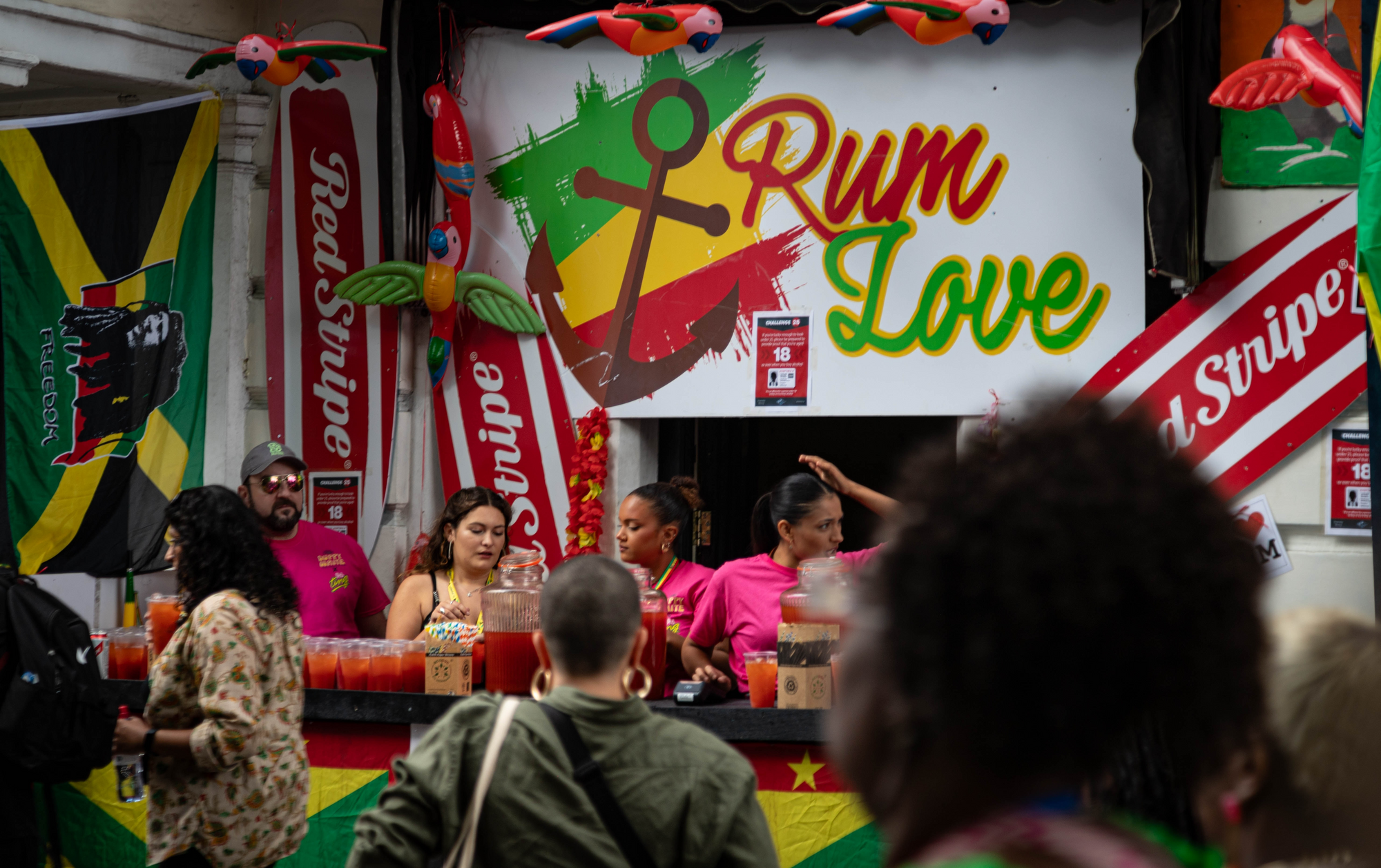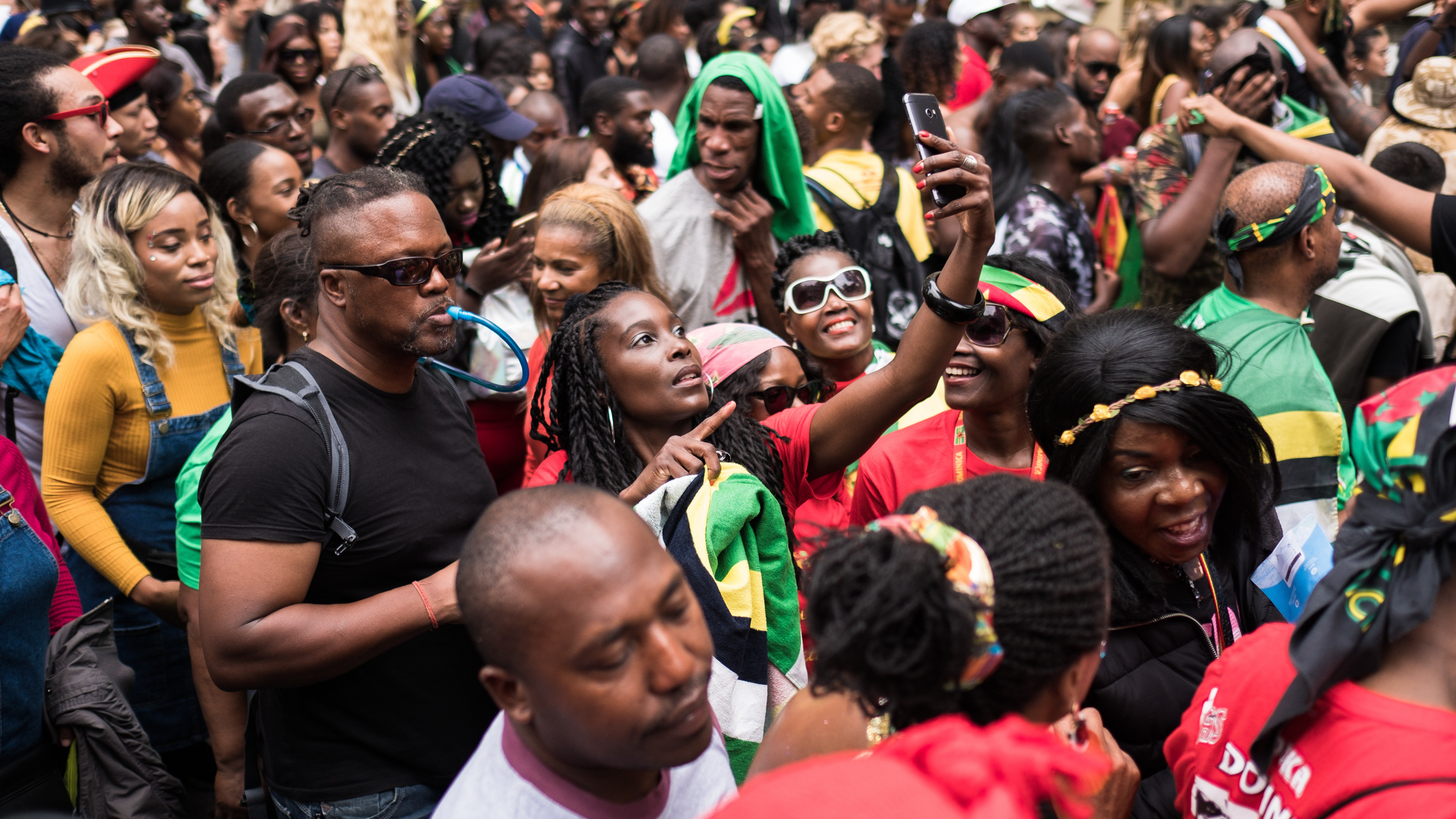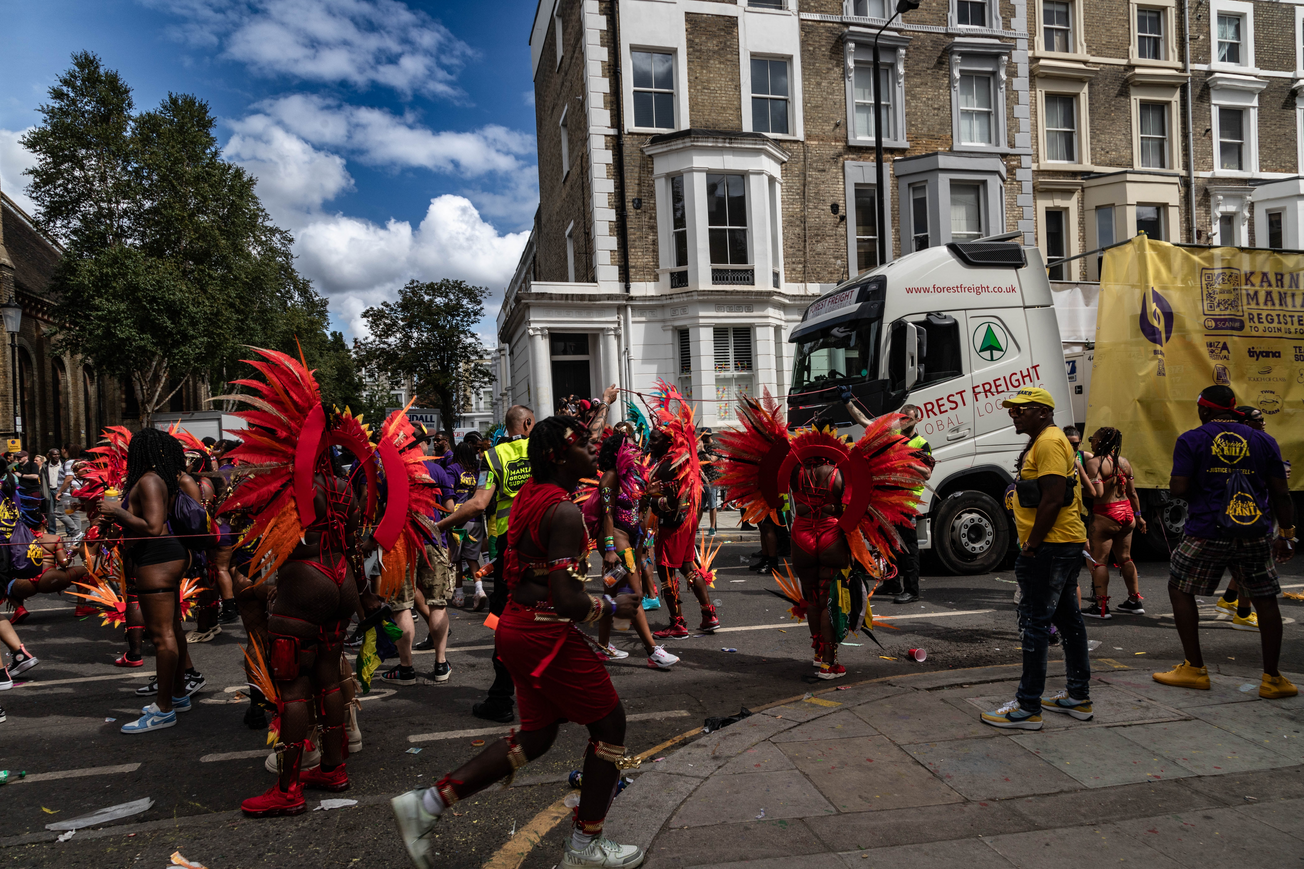By Sarah Fakhri, Second Year, Law
I cannot help but think that the word 'carnival' in this context is slightly inadequate. True, the Notting Hill Carnival (NHC) is a vibrant celebration filled with colourful costumes, music, and dancing. However, it goes far beyond just being a festive event. It serves as a powerful symbol of resilience and unity for the community it represents.
The Carnival was born out of adversity, in response to racial tensions in the 1950s and 1960s when Notting Hill was marred by discrimination and hostility towards communities of Caribbean descent. It began as an indoor Caribbean Carnival organised by Trinidadian-born Claudia Jones and Jamaican co-founder Sam King after the 1958 Notting Hill Race riots. Since then, it has become an annual tradition that takes place every August in London to bring people from diverse backgrounds together, promoting inclusivity, cultural exchange, and the freedom of expression for marginalised groups.
The NHC has witnessed a transformation over the years, similar to the way in which the indoor Caribbean Carnival had to evolve, to reach where it is today. Nonetheless, when delving into its rich history and evolution, the following question arises: is whitewashing occurring over time at the Carnival, and is its essence being diluted in the process?
At its core, the Carnival is an outdoor celebration of Caribbean culture fuelled by reggae and soca music. It is decorated with the colours of the Caribbean flag, and the smell of authentic Caribbean cuisine fills the air, with vendors selling traditional dishes like jerk chicken, roti, and pepper pot. Its infectious spirit of festivity is a platform for Afro-Caribbean communities to proudly showcase their heritage and celebrate their culture, inviting people from all backgrounds to join the festivities. However, as the Carnival becomes more mainstream and commercialised, there is a growing concern that certain elements may get lost or overshadowed as a result.

The changing landscape
Over the years, the NHC has grown in scale and popularity, eventually becoming the largest street festival in the United Kingdom. This growth has led to more diverse attention and participation, sparking concerns towards the NHC's authenticity. In 2017, discussions arose about whether the Carnival should be a ticketed event in response to an article by LBC's Clare Foges, who argued that ticketing could help control crowd sizes and ensure safety. Although this may sound like a reasonable solution, it is, in reality, a form of whitewashing of black culture. This is because it would fundamentally change the nature of the event, turning it from a carnival into a festival. The Carnival has always celebrated Caribbean culture and symbolises inclusivity by being open to everyone regardless of their background or financial means. Introducing tickets could ostracise those who cannot afford them, leading to a loss of the Carnival's diverse and vibrant atmosphere. Ultimately, the decision to keep the NHC free was made. However, the fact that Foges made this suggestion in the first place creates the fear that the authentic traditions and narratives of the Carnival are being erased.
Similarly, there has been debate about NHC's supposed "evolution", with some arguing that it has only resulted in the whitewashing of the music featured. Mainstream music genres have now been incorporated into the Carnival's soundtrack, which some Caribbean attendees feel has diluted the event's authenticity. Surprisingly, some attendees have also complained that they do not want to listen to Caribbean music at the NHC, even though it is a Caribbean festival that celebrates Caribbean culture. This truly exemplifies how people are slowly forgetting the cultural nuances and history behind the event.
Media bias
When searching 'Notting Hill Carnival', the first results that appear are often related to crimes and stabbings. The media tends to sensationalise negative incidents and associate them with the Carnival and its attendees. A media bias ultimately polarises such figures and statistics, and as saddening as it is, such crimes happen in all cultures and parts of society. Take football events, for example; although they are ticketed, there continue to be incidents of violence and crime. However, it is essential to note that these incidents do not define the entire football community or culture.
Similarly, it is unfair to generalise and stigmatise the Carnival as a whole based on isolated incidents of violence. This immediate association of the Carnival with negative incidents perpetuates a biased narrative that overshadows the positive experiences and diverse communities that come together during such events. Kingsley, a regular carnival attendee, has accused the media coverage of racism, arguing that although similar incidents happen in other festivals, it is 'just not promoted as much in the media as it is when it's a black event'. This truly foregrounds how media bias perpetuates a distorted image of the Carnival, overshadowing its true essence and purpose. It is essential to recognise that most Carnival attendees are there to enjoy the festivities and embrace the vibrant atmosphere rather than engage in violence. By focusing solely on isolated incidents, we risk perpetuating stereotypes and overlooking the overall positive impact of these events on communities.

Now what?
The evolution of cultural celebrations is an inevitable process because as communities grow and change, so does the way they celebrate their traditions. Adapting and evolving the Carnival ensures its continued relevance and inclusivity for future generations. Yet, societal shifts cannot be used as a justification to completely disregard the significance and value of cultural celebrations. Although we cannot control what is shared in the media, news and information must be approached with a critical mindset, recognising that media portrayals often amplify negative events while overlooking the positive aspects. Ultimately, it is integral to strike a balance between honouring traditions and embracing progress, recognising that cultural celebrations can foster unity and understanding among diverse communities.
Featured Image: Bernd Dittrich/Unsplash
How are continual changes to Notting Hill Carnival diluting the cultural impact it has? Let us know what you think @EpigramPaper.









